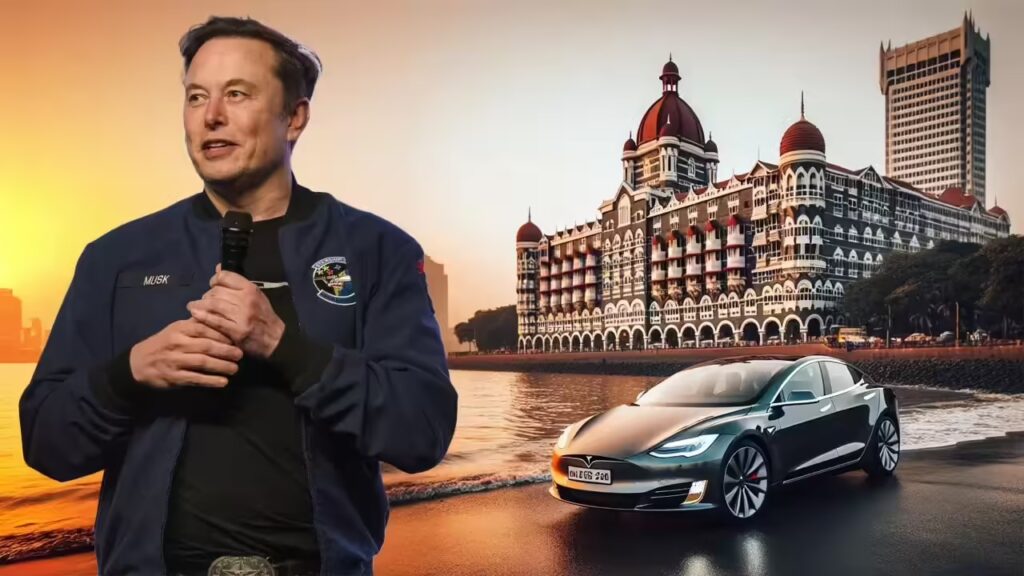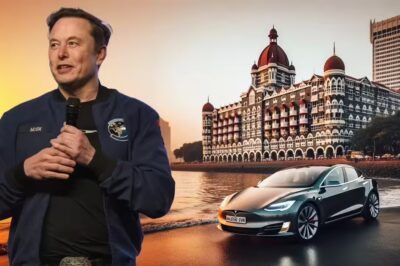
A Milestone Arrival
Elon Musk’s Tesla will officially open its first store in India on 15 July 2025, planting its flag in the vibrant electric vehicle (EV) market of the world’s third-largest automobile economy. The venue, termed a “Tesla Experience Centre”, is located in Mumbai’s high-profile Bandra-Kurla Complex (BKC), marking a pivotal moment after years of speculation and strategic positioning.
Why Mumbai First?
Mumbai, India’s commercial powerhouse, offers the perfect stage for Tesla’s debut. With the Experience Centre positioned in the upscale BKC, Tesla isn’t just opening a showroom, it’s launching a brand experience hub. This space aims to showcase Tesla’s EV technology and design without initially offering test drives or vehicle deliveries.
Imports Over Local Manufacturing
Tesla has imported roughly USD 1 million worth of vehicles, chargers, and branded merchandise for the launch. This includes six Model Y SUVs (five standard and one long-range variant), sourced from Shanghai and the United States. The company has clarified that these will be sold as completely built units due to India’s steep import duties, about 70 percent on vehicles under USD 40,000. As a result, the projected ex-showroom price for the Model Y exceeds USD 56,000, significantly above the US base price of USD 44,990.
Despite longstanding government efforts to attract Tesla into local manufacturing, like drafting inducive policies and proposing incentives, Tesla has, for now, chosen to stick with retail operations and imports only. Internal sources report that the company has no immediate plans to build production facilities in India.
Pricing and Market Challenges
In a predominantly price-conscious market where EVs currently make up just over 5 percent of new car sales, and luxury EVs less than 2 percent, Tesla’s premium pricing poses a challenge. The Model Y’s projected cost, exceeding INR 50 lakh (~USD 56,000) before additional taxes, insurance, and local charges, contrasts sharply with Indian offerings from Tata, Mahindra, and BYD, which are more competitively priced.
Tesla seems to be betting on early adopters and tech-savvy luxury buyers while recognizing that wider adoption in India may require adaptation, whether through localized models, lower pricing, or a future move toward domestic production.
Expansion Plans and Local Presence
Mumbai is just the beginning. Tesla reportedly plans a second showroom in New Delhi, aiming to establish its footprint in India’s two major metro markets. In parallel, the company has leased several commercial and operational facilities, including offices in Bengaluru, an engineering hub in Pune, and a service centre in Kurla West. These moves reflect a phased build-out of retail, support, and development infrastructure in India.
Tesla is also actively recruiting local employees across roles like store management, sales, service, supply chain, and autopilot operations, filling several of the 36 job openings advertised earlier in 2025.
Global Strategy Meets Local Realities
Tesla’s Indian foray appears driven by a broader global context: the company is grappling with excess capacity and softening demand in other markets. Leveraging imports to enter a promising new terrain helps fill production gaps, even while paying high import levies.
At the same time, Tesla’s reluctance to commit to manufacturing in India may limit its long-term competitiveness in a market increasingly shaped by local content norms and economic incentives.
What Lies Ahead
Many questions remain. Will Tesla eventually localise production to reduce costs and make its cars more accessible? Can it overcome infrastructure hurdles, such as limited charging facilities and service ecosystems? Could local policy shifts, or rising consumer demand, prompt a shift from import-centric operations to domestic manufacturing?
Tesla’s next milestones, like starting local deliveries (expected by late August), staging expansion to New Delhi, and navigating pricing strategy, will determine whether its launch is a niche spectacle or a catalyst for EV transformation in India.
Tesla’s July 15 launch does more than introduce a car brand, it ignites a potential shift in India’s EV landscape. Whether it accelerates India’s electric vehicle transformation or remains a premium outlier depends on Tesla’s strategic flexibility and India’s evolving market dynamics.









































Leave a Reply